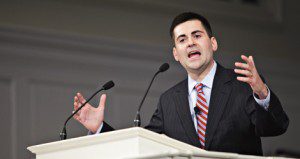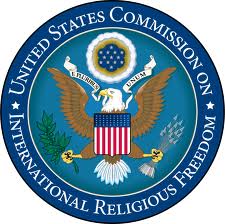Last Thursday Baptist ethicist Russell Moore made a case for religious liberty in a way that perhaps startled critics who see conservative evangelicals as theocrats. He advocated on behalf of non-Christians. At a Washington, D.C., symposium entitled “Faith, Culture & Religious Freedom in the 21st Century,” Moore said that evangelicals have done a poor job of paying attention to the religious freedom of others. He declared, “One of the mistakes people made in the past is a kind of majoritarian understanding, maintaining our own rights without diligently fighting for religious liberty for all persons.”

To be sure, too many evangelicals still focus more on their own liberties than others’. But Moore’s declaration reflects the maturing of evangelical thinking on human rights and religious freedom. Late to join the human rights movement, evangelicals began to issue a stream of increasingly sophisticated books and conferences in the 1970s. The evangelical left led the way with hundreds of screeds against human rights violations perpetrated by totalitarian regimes, with special attention directed to Western imperialisms. Soon after, an increasingly invested evangelical right, which had been preoccupied with Communist and Muslim violations, joined the ranks. Frank Wolf, a Republican representative from Virginia, became one of Congress’s most active advocates of human rights. He spoke out against Iran’s “systematic persecution” of the Baha’is, China’s persecution of women and Christians, and genocide in Darfur. Pepperdine University School of Law’s human rights program has blossomed. And a bevy of other human rights organizations has also emerged: the American Anti-Slavery Group, International Justice Mission, and Evangelicals for Human Rights, which has campaigned almost exclusively against American torture of Muslim detainees. Many of these groups lobbied to pass the International Religious Freedom Act (IRFA) of 1998, the Trafficking Victims Protection Act of 2000, the Sudan Peace Act of 2002, and the North Korean Human Rights Act of 2004. Out of a context in which many secular groups, seeing religion as an oppressive force, have been blind to the plight of persecuted Christians, some commentators now argue that evangelicals have become the new leaders of the human rights movement.
And so evangelical activism seems to be moving beyond self-interest. The more expansive approach to religious freedom can be traced to growing ecumenical sensibilities. Emerging out of separatist fundamentalism and hostility toward Catholics and mainliners, evangelicals began to learn from and work with non-evangelicals. In the 1970s Christianity Today’s editors frequently cited secular human rights groups in their reports of persecutions of Christians. In the 1980s World Evangelical Fellowship (now called World Evangelical Alliance) persistently quoted ecumenical sources on human rights in their journal. In more recent years evangelicals have grounded their commitment to human rights in the concept of “imago dei,” a theological move derived from Catholic sources. This emphasis on the image of God and divine transcendence has promoted a more robust sense of universal human solidarity.
 Theological cross-fertilization fed new networks of activist cobelligerancy. World Evangelical Alliance, a global body representing over 150 million evangelicals in 115 countries, has worked with Amnesty International, Jubilee Campaign, Middle East Concern, and Christian Solidarity International. Paul Marshall, a specialist in religious freedom and human rights, has collaborated with Amnesty International, Human Rights Watch, the U.S. Institute of Peace, Catholic University, Open Doors, and the Commission on Security and Cooperation in Europe. These networks bore significant fruit in the early 2000s when a coalition of evangelicals, Catholics, Jews, Tibetan Buddhists, feminists, the Congressional Black Caucus, and secularists drove the passage of the IRFA.
Theological cross-fertilization fed new networks of activist cobelligerancy. World Evangelical Alliance, a global body representing over 150 million evangelicals in 115 countries, has worked with Amnesty International, Jubilee Campaign, Middle East Concern, and Christian Solidarity International. Paul Marshall, a specialist in religious freedom and human rights, has collaborated with Amnesty International, Human Rights Watch, the U.S. Institute of Peace, Catholic University, Open Doors, and the Commission on Security and Cooperation in Europe. These networks bore significant fruit in the early 2000s when a coalition of evangelicals, Catholics, Jews, Tibetan Buddhists, feminists, the Congressional Black Caucus, and secularists drove the passage of the IRFA.
As this ecumenism suggests, the IRFA was not solely the product of an identity politics meant to protect only evangelicals. Christian activists, Allen Hertzke writes, have “created free spaces for other religious minorities in civil society.” Russell Moore’s words last week–“Evangelical Christians need to be the first people in any given community to stand up and say, ‘we don’t want the mayor to have the power to keep a mosque out of here simply because its a mosque’”–reflect this broader evangelical trajectory.












